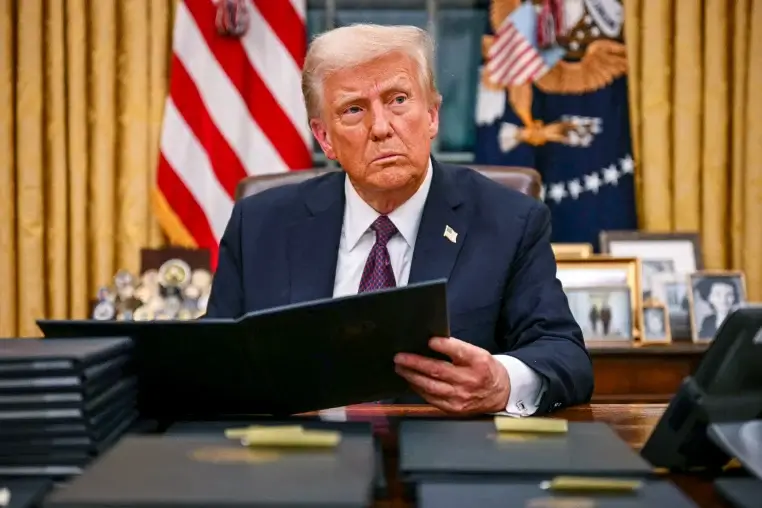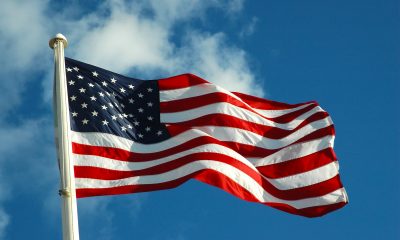Business
Why Trump Slapped A 14% Tariff On Nigeria — U.S. Gov’t Speaks Out

The U.S. government has defended President Donald Trump’s decision to impose a 14 per cent tariff on Nigerian exports, citing trade barriers created by Nigeria’s restrictions on 25 categories of American goods.
Naija News recalls that last week, Trump announced new tariffs under what he termed ‘Liberation Day’ trade measures, affecting nearly all countries, including Nigeria.
His administration argued that Nigeria applies an average 27 per cent tariff on American imports, which he labelled as an example of “unfair dealing.”
The Trump administration argued that these import bans limit U.S. market access, particularly in agriculture, pharmaceuticals, and consumer goods, leading to significant losses for American businesses.
As part of the broader ‘Liberation Day’ trade measures, the tariffs have triggered global economic ripples, with major stock markets experiencing sharp declines and key nations, including China and Canada, announcing retaliatory actions against the U.S.
A fact sheet released on Monday by the United States Trade Representative (USTR) outlined the rationale behind the tariffs, highlighting Nigeria’s prohibitive policies against U.S. exports, particularly in the food and pharmaceutical sectors.
“Nigeria’s import ban on 25 different product categories impacts U.S. exporters, particularly in agriculture, pharmaceuticals, beverages, and consumer goods. Restrictions on items like beef, pork, poultry, fruit juices, medicaments, and spirits limit U.S. market access and reduce export opportunities,” USTR explained.
The agency further stated, “These policies create significant trade barriers that lead to lost revenue for U.S. businesses looking to expand in the Nigerian market.”
Trump’s sweeping tariff policy has had widespread economic repercussions, with stock markets in the U.S., China, the U.K., India, and several other nations experiencing sharp declines on Monday.
The global financial turbulence resulted in the world’s top 500 billionaires collectively losing $208 billion in a single day, marking the fourth-largest one-day drop in the 13-year history of the Bloomberg Billionaires Index—and the most severe since the peak of the COVID-19 pandemic.
In response, China and Canada have announced their own countermeasures, with Beijing imposing a 34 per cent tariff on American goods and restricting the export of key resources, including rare earth elements, pharmaceuticals, and food products, to the U.S.
Meanwhile the Bola Tinubu-led government is considering a major reset of its economic strategy in response to a 14% tariff imposed on Nigerian exports by the United States.
Naija News reports that the tariff, which comes as part of a broader trade dispute between the two nations, threatens to affect Nigeria’s $6 billion annual exports to the U.S., exacerbating existing economic challenges such as inflation and a weakened naira.
Nigeria’s Minister of Finance and Coordinating Minister of the Economy, Wale Edun, acknowledged the economic implications of the new U.S. tariff and expressed concerns about its potential effects on the country.












